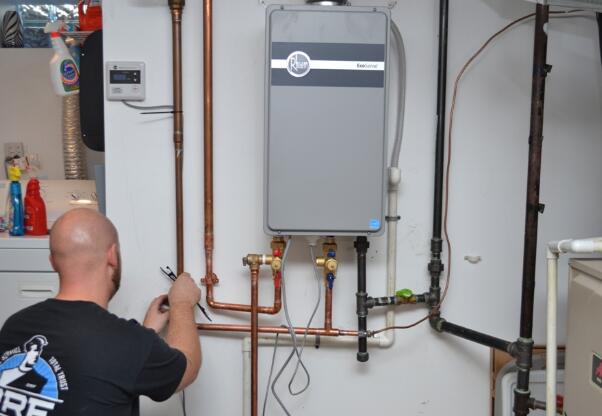Many people struggle with the decision on whether to turn off the gas water heater or not? Reasons for needing to turn it off will vary from household to household. For some, it is an energy-saving measure that results in less spending. For others, it could be that they’re going away for some time, and they’re afraid to leave the gas on.
Arguments For and Against Turning off the Gas Water Heater
There are different arguments on whether or not to turn off the gas heater. We will look at both sides in more detail below.

• Cost Savings
Some people recommend that if you will be away from the house for an extended period, you should turn off the gas heater. After all, what is the point of having hot water, if there is no one around to use it? You get to save some money. Research indicates that you will lose up to 10% of energy from the heat that escapes from the tank. When you convert this into a dollar amount, it can accumulate into a substantial figure. If, for example, you use $30 on gas and lose 10% of it, you are essentially throwing $3 down the drain when you hear your water unnecessarily.
• Turning Off the Heater In Between Uses.
You might be of the opinion that it is a good idea to turn off the water heater in between uses. The answer may actually be that you should not do this. According to some arguments, the savings may not be significant enough to warrant turning off the water heater in between uses. According to the reports, you may actually create more problems when you repeatedly turn off and on the water heater. It will only make sense for you to turn it off if you will be away for a long time.
Some of the gas heaters come with the ‘vacation mode’ on the thermostat that you can take advantage of if you’ve been away for less than, say, a month. You actually get to save less than $1 a day when you turn off your gas heater in between uses. The savings you get will vary, depending on how you use your water and the type of gas heater you have.
• Gas Water Heater Issues
In the case that you notice any problems with the water heater, you will need to turn it off to correct the problem. You may, for example, see that there is leakage from the bottom part. There could be water spilling from the pressure relief valve, which could be indicative of a disaster waiting to happen.
You may also notice that it is overheating or making strange noises. In this case, it is of utmost importance that you turn off the gas water heater as you take remedial action. Continuing to run the gas water heater under such conditions could make the problem worse.
Problems you may encounter with repeated turning on and off of the heater.
If you are away for a short time, turning off the heater can result in the following:
- The inconvenience of having to wait for the water to warm up when you need to use it. for some water heaters, it may take between 20 minutes to 1 hour before you can enjoy your shower
- You may have some difficulties turning on the water heater.
- You may place unnecessary strain on the heater, especially if it is the older model. The stress could result in a breakdown of some parts, which may require that you do repairs. Any savings you may have had will go to the local handyman as he works at getting your heater back in working condition.
Final Thoughts
We have looked at whether or not it is OK to turn off a gas water heater. The times you should turn it off, is when you will be away from home for an extended period. It is also important to turn it off when you need to carry out any major repairs. If you carry out maintenance work on the water heater, including removal of sediments, it would make sense for you to turn off the heater during the cleanup.
With both hands-on plumbing experience and engineering know-how, David explains when shutting off your gas water heater is smart.


